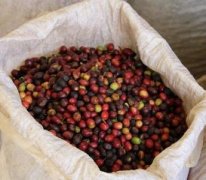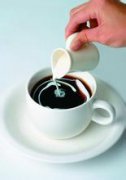The Hope Manor of Panamanian Coffee: Elida Manor Carmen

The Hope Manor is located at an altitude of 1400-1600 meters, with an output of 300,700 bags. Most of the processing is done on the farm, washing and drying in the sun, and the shell, pulp and mucous membrane are used as fertilizer. The estate grows 60% Katula, 20% Katuai and 20% iron pickup and other varieties, the most famous being the rose summer seed, which won the championship in BEST OF PANAMA in 2008. They also plant many local trees as shade trees and nourish the soil, including orange trees and many tropical fruits such as lemons and grapefruit. There is a huge tropical rainforest nature reserve in the manor, and colleagues have at least three different mountain wells with rich rainfall, with an average annual rainfall of 3200 mm and a weather temperature range of 16-23 degrees during the day and 14-20 degrees at night.
Hope Manor
[country]: Panama
[producing area]: Pocket
[rating]: SHB
[variety]: Katura, Katuai, Tippika
[baking degree]: CITY+ (moderate)
[treatment]: washing
[planting environment]: 1400-1600m above sea level
[producer / company]: hope Manor Hacienda La Esperanza
[certification]: organic certification
[taste]: this organic Pokuit, dry and wet with nutty and berry aromas, low acidity, soft, high sweetness, body delicate and mellow, very long retention time, the overall feeling is a bit similar to baby rose summer and sweet rose summer.
Alida Manor (Elida)
[name]: Alida Manor Sunshine (Elida Natural)
[producing area]: Pocket (Boquete)
[manor]: Alida Manor (Elida)
[variety]: Catuai 85%, Typica & Bourbon 15%, Geisha (small amount)
[treatment]: Natural
[altitude]: more than 1800 meters
[planting soil]: volcanic soil (Volcanic clay)
[flavor description]: tropical fruits, spices, nuts, milk chocolate
The history of the farm dates back to 1918. The farm was owned by the Lamastus family, and the name of the farm, Elida Alida, was the name of the then farmer, Mrs. Robert Louis Lamastus. Located in the Boquete producing area, Elida Manor is almost the highest in Panama, and nearly half of its area is in a national conservation park, an ultra-high altitude manor rarely seen in Central America! Elida has a total area of 65 hectares, more than half of which is within the Baru Volcano National Park, 30 hectares of which are planted with coffee trees and the remaining 35 hectares are virgin forests. Coffee is grown from 1670 to 1850 meters above sea level, making it one of the two highest coffee farms in Panama (the other estate with these elevations should be Carmen in the Vulcan Valley).
The rugged mountain of Balu is a young volcano, more than 3400 meters above sea level, an active volcano, surrounded by seven different micro-climatic zones, brewing a rich and diverse ecological environment, and Arida Manor straddles them. A diverse micro-climate has both advantages and disadvantages for coffee growing. for Arida, her flavor is richer and more varied than most Panamanian coffee. Of course, the terrain at ultra-high altitude also has its drawbacks. Due to the excessive temperature difference between morning and evening, it takes five years for the coffee to be harvested for the first time after sowing. The waiting period for receipt is quite long (usually only 3 years for coffee in the producing area). Although the plant growth is slow, it is very helpful to the development of coffee flavor. After entering the harvest period, the ripening period of coffee is often more than a month due to the relationship of temperature. when irresistible factors such as hurricanes and heavy rains come on the eve of ripening, it is well known that it will cause heavy losses, but because the beans do not meet the harvest standards of the manor, under the insistence of quality, refuse to rush to harvest, resulting in a sharp decline in harvest! The risk is actually much greater than that of other low-altitude estates.
There are three main varieties planted in Elida Manor, namely, Catuai (Kaduai), Typica (Iron pickup) and Geisha (Rose Summer). The processing plant of the manor is halfway up the hillside. After the coffee is picked, it can be transported to the factory for processing as soon as possible to ensure that the quality of the coffee fruit is not affected. Of course, Elida's environment is also suitable for growing other high-quality temperate crops, especially tree tomatoes and some uncommon high-altitude fruits, which are interestingly often found in Elida coffee.
In addition to the unique ultra-high altitude and microclimate, Mr. Wilford, the owner of the manor, has also made considerable efforts in harvesting and processing. In order to meet the highest standard, the coffee at Elida Manor is only allowed to pick the most ripe coffee fruit (Ripe on Pinton) by hand. The maturity of the fruit is high, and the sugar content of pectin is naturally high, which is also the basis for producing high-quality Elida flavor.
Mr. Wilford, the owner of the estate, in addition to the extremely strict treatment of coffee cultivation, the "purification" after the processing of raw beans is also more stringent than those in the same industry. Ailida of Panama, for example, after the processing of raw beans need to go through more than 5 months of low-temperature Resting to green, so that the flavor of coffee can be more balanced and full development. (low-temperature Resting is a concept of raw bean purification that was vigorously promoted by coffee master George Howell in 2006. We found that raw beans in subtropical places need to be kept at low temperature, but different treatments and elevations will change the time of low-temperature Resting. For Alida, Panama, 5 months of low-temperature Resting is the best.)
Cup tester Ken Davids scored a high score of 93 for coffee at Elida Manor in 2012! Elida is also a regular on the bean list of players from all over the world in the World Barista Competition (WBC). It is also common to see contestants use a single Elida to concentrate SOE in the finals of Taiwan's TBC (Taiwan baristas contest) and domestic CBC (Chinese baristas competitions).
Due to the unique geographical conditions and the persistence and pursuit of coffee quality by Mr. Wilford, the landowner, Elida (Alida Manor) has been ranked as one of the three major estates in Panama along with La Esmeralda (Emerald Manor) and Kotowa Duncan (Duncan Manor).
Carmen Manor
[Origin]: Panama
[manor]: Carmen Manor
[grade]: SHB, EP
[altitude]: 1750 m
[soil]: black soil
[particles]: 17 mesh
[variety]: Kaduai Catuai 70%, Kaddura Caurra20%, Iron pickup Typica, Dwarf San Ramon San Ramon, New World Mundo Novo 10%
[raw bean treatment]: semi-washed
Carmen Manor Coffee is a coffee estate dominated by the family. The family has long grown coffee under the principle of providing high-quality coffee and protecting the environment. Efrain and Carmen Franceschi began growing Arabica coffee varieties on their estate in 1950. Today, Carmen Manor single processing plant produces about 1200 bags (60 kg each) of unique high-quality coffee beans every year!
Carmen Manor is located in the volcanic valley at an altitude of 1750 m. The manor is blessed with fertile soil and good natural shade. In addition, this area is also affected by the dual climate of the Pacific and Atlantic Ocean, and the climate is cool. The dual characteristics of no frost damage at night and dry weather can create excellent growth conditions! Thanks to the volcano's black soil and good drainage facilities, Carmen Manor has high-quality Catuai,Caturra and Typica Arabica coffee!
Carmen Manor has 60% of the natural primeval forest, where coffee trees are planted and grow in the shade of these natural trees! As a result, the farm has been certified by Rainforest Alliance Association as ECO- OK environmentally friendly coffee! The coffee beans are harvested from late December to March of the next year, and the mature coffee cherries are harvested artificially. The waste from the fruit treatment (if the meat or juice is properly converted to composting or recycling, the raw beans are initially sun-dried and stored in the exclusive warehouse for secondary moisture content adjustment, and then shelled before export to maintain good quality of raw beans!
Carmen Manor has obtained the Ecological Conservation Certification (Certified Eco-OK Coffees) issued by the Tropical Rainforest Alliance, which is very strict and requires environmental and organic requirements at every step from planting to raw bean grinding, such as species diversity in the manor, zero pollution treatment process, reduced or restricted use of artificial chemical fertilizers, social and economic security of manor coffee farmers, and so on.
Important Notice :
前街咖啡 FrontStreet Coffee has moved to new addredd:
FrontStreet Coffee Address: 315,Donghua East Road,GuangZhou
Tel:020 38364473
- Prev

Main plantations of coffee in Panama: Villa Donica Panama·Emerald
Boquet has always been Panama's most eye-catching coffee producing area. There are many famous estates in the area, such as Esmeralda, Hartman, Mama Cata, Kotowa, Santa Teresa, etc., which are famous for their Geisha varieties.
- Next

Panama Emerald Estate Rose Summer Coffee Beans Panama Boutique Coffee Beans Quality Introduction
With an aura of invincibility and invincibility, Emerald Manor's geisha became a dream in the coffee world, its floral fragrance like fireworks, constantly blooming in the mouth during the drinking process, with lemon, citrus, strawberry juice, making it like juice rather than coffee. Jeff, a geisha coffee fan, says, what coffee is as invincible as geisha? Drinking Panama Emerald Estate every year
Related
- Detailed explanation of Jadeite planting Land in Panamanian Jadeite Manor introduction to the grading system of Jadeite competitive bidding, Red bid, Green bid and Rose Summer
- Story of Coffee planting in Brenka region of Costa Rica Stonehenge Manor anaerobic heavy honey treatment of flavor mouth
- What's on the barrel of Blue Mountain Coffee beans?
- Can American coffee also pull flowers? How to use hot American style to pull out a good-looking pattern?
- Can you make a cold extract with coffee beans? What is the right proportion for cold-extracted coffee formula?
- Indonesian PWN Gold Mandrine Coffee Origin Features Flavor How to Chong? Mandolin coffee is American.
- A brief introduction to the flavor characteristics of Brazilian yellow bourbon coffee beans
- What is the effect of different water quality on the flavor of cold-extracted coffee? What kind of water is best for brewing coffee?
- Why do you think of Rose Summer whenever you mention Panamanian coffee?
- Introduction to the characteristics of authentic blue mountain coffee bean producing areas? What is the CIB Coffee Authority in Jamaica?

